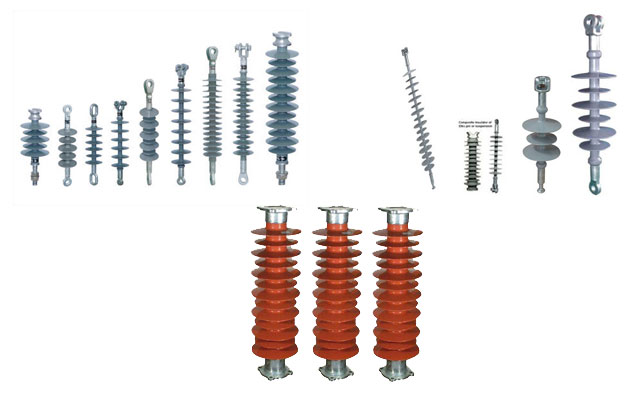Polymer Insulator

Manufacturer, Exporters, Dealers, and Suppliers of polymer insulator in ahmedabad, gujarat, india
Type of Porcelain Insulators
- Pin Type Polymer Insulator : Mounted on poles for medium voltage lines
- Suspension Type Polymer Insulator : Hung from towers in high voltage lines
- Post Type Polymer Insulator : Used in substations and switchyards
- Strain/Line Post Insulator : Withstands mechanical tension at dead-end or corner points
Features
- Lightweight and easy to handle compared to porcelain
- High mechanical strength due to fiber-reinforced rod
- Hydrophobic surface resists water, reducing leakage currents
- Excellent resistance to pollution, UV radiation, and chemicals
- Flexible design, less risk of breakage or vandalism
Advantages
- Reduced weight reduces tower and handling cost
- Better performance in polluted and coastal areas
- Shock-resistant and shatterproof
- Low maintenance and long service life
Applications
- Overhead transmission and distribution lines
- Railways and traction systems
- High voltage substations
- Coastal and industrial regions prone to pollution
Best Polymer Insulator manufacturer, Suppliers and exporters In Ahmedabad, Gujarat, India.
Polymer Insulator, also known as a composite insulator, is a modern type of electrical insulator used in power transmission and distribution systems. It is made of a fiberglass core covered with silicone rubber or EPDM housing, and metal end fittings. Polymer insulators offer excellent electrical insulation and mechanical strength while being lightweight and resistant to environmental damage.
Polymer insulators play a crucial role in the functionality and safety of electrical systems, serving as vital components that provide both insulation and structural support for overhead power lines. Unlike traditional insulators made from ceramic or glass, polymer insulators are crafted from advanced polymer materials that exhibit remarkable performance characteristics. These materials not only ensure effective electrical insulation but also possess a range of physical properties that enhance their overall utility in various environmental conditions.
One of the most significant advantages of polymer insulators is their lightweight nature, which simplifies the installation process and reduces the labor required for maintenance. This ease of handling is particularly beneficial in remote or challenging locations where heavy equipment may be difficult to deploy. Additionally, the reduced weight of polymer insulators allows for longer spans between support structures, which can lead to a decrease in the overall number of towers needed for power line construction. This not only streamlines the installation process but also contributes to lower material and labor costs.
Moreover, polymer insulators are engineered to withstand a variety of environmental challenges, including ultraviolet radiation, pollution, and extreme weather conditions. Their resistance to UV degradation ensures that they maintain their structural integrity and insulating properties over time, even when exposed to harsh sunlight. Similarly, their ability to resist the accumulation of dirt and pollutants minimizes the risk of electrical failures caused by surface contamination. This durability translates into a longer lifespan for the insulators, which ultimately enhances the reliability of the electrical infrastructure.
As a result of these advantages, polymer insulators are becoming increasingly favored in modern electrical systems. Their superior performance not only improves the efficiency of power transmission but also contributes to reduced operational costs for utility companies. By minimizing maintenance needs and extending the lifespan of the insulators, utilities can allocate resources more effectively, leading to enhanced service reliability for consumers. In summary, the adoption of polymer insulators represents a significant advancement in electrical engineering, aligning with the growing demand for efficient, sustainable, and resilient power infrastructure.


